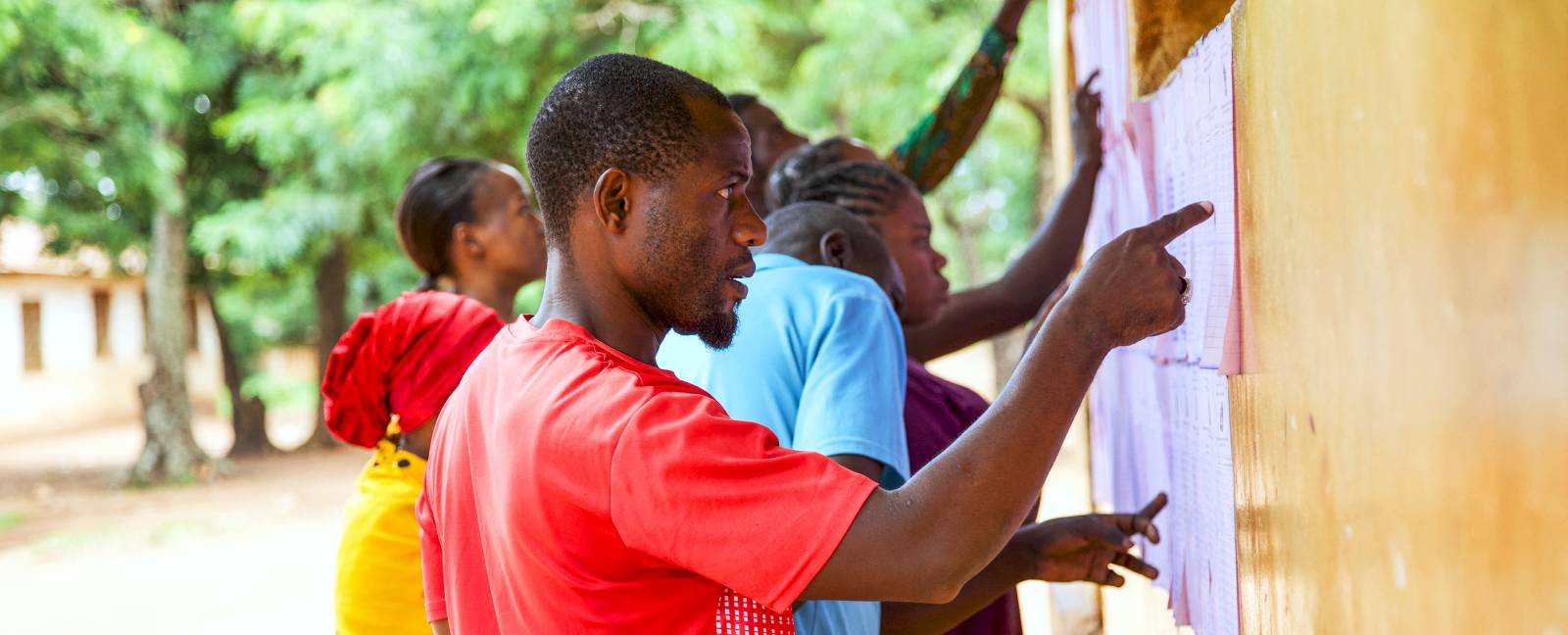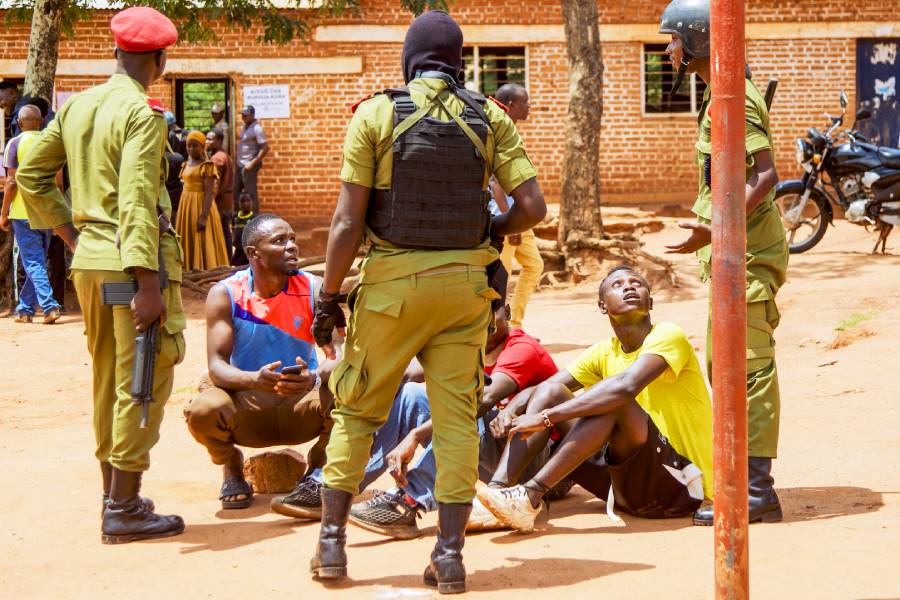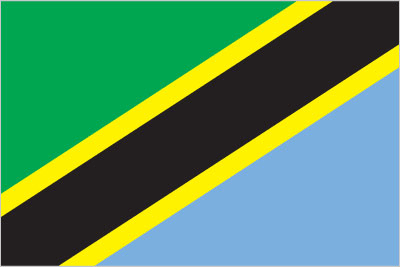« Previous: Côte d’Ivoire (October)
Next: Guinea-Bissau (November 30) »
Presidential and Legislative Elections
October
Four years following his death, former President John Magufuli is casting a long shadow over Tanzania’s 2025 elections—and prospects for the country resuming its democratic path. Known as “the bulldozer” for his uncompromising, hardline tactics, Magufuli reshaped Tanzanian politics. From a moderate, dominant-party system widely admired for upholding basic civil liberties, under Magufuli politics grew into a repressive cult of personality that effectively banned opposition parties and disregarded the rule of law in the interest of implementing Magufuli’s agenda and the further domination of the ruling Chama Cha Mapinduzi (CCM) party. Political violence, previously rare, became normalized—most prominently in the 2017 assassination attempt that left opposition leader Tundu Lissu riddled with 17 bullets.
The CCM and its precursor have been in power since Tanzanian independence in 1961.
President Samia Suluhu Hassan’s ascent to power following Magufuli’s death (believed to be due to COVID) provided an opportunity for the country of 67 million to exhale and tact back toward Tanzania’s historically more moderate political culture.
She introduced reforms restoring civic rights, including lifting bans on media outlets, releasing imprisoned opposition leaders, and creating a more open environment for political dialogue and engagement. In January 2023, she lifted Magufuli’s ban on opposition party rallies.
A government-backed taskforce on political reform recommended in 2022 the establishment of a new, nonpartisan Independent National Electoral Commission (INEC) and for electoral results to be challengeable in the High Court.

Citizens look for their names on voters lists before casting their vote during a Tanzanian local election. (Photo: AFP)
As part of her 4Rs agenda—reconciliation, resilience, reforms, and rebuilding—Samia met with Tundu Lissu who returned to Tanzania after 5 years in self-imposed exile. Samia, meanwhile, replaced key Magufuli hardliners, including the head of national security, who oversaw the previous president’s brutal crackdown on civil liberties. Reaching across the political aisle, she joined the women’s wing of the opposition Chama cha Demokrasia na Maendeleo (Chadema) party to celebrate International Women’s Day in 2023.
These actions won many plaudits at home and abroad, renewing opportunities for expanded international investment in and collaboration with Tanzania.
The opening also provided an opportunity for opposition parties to begin to rebuild their organizational structures and publicly reengage with citizens. Due to the draconian restrictions, bias in electoral processes, and use of violence by Magufuli, most opposition parties had boycotted the 2020 legislative elections—leaving the opposition with diminished official representation. Although there are 19 registered opposition political parties, the 2 with the broadest appeal are Chadema, led by Tundu Lissu, and the Alliance for Change and Transparency (Chama cha Wazalendo, ACT-Wazalendo), led by Zitto Kabwe.
Observers have been dismayed at the return of some of the Magufuli tactics of abduction, intimidation, and killings of CCM critics in the past year.
Given this thawing of domestic politics, many observers have been dismayed at the return of some of the Magufuli tactics of abduction, intimidation, and killings of CCM critics in the past year.
In August 2024, 500 Chadema supporters were arrested ahead of a rally they scheduled on International Youth Day. This included Chadema’s then-Chairman Freeman Mbowe, Vice Chairman Tundu Lissu, and Secretary General John Manyika. The arrests also revived concerns over the politicization of the security sector.
In September, a member of the Chadema party’s secretariat, Ali Mohamed Kibao, was abducted and later discovered dead, showing signs of physical abuse and acid burns on his face—an action Samia quickly condemned. The case appears to be part of a pattern as the Tanganyika Law Society has released a list of 83 individuals who have been abducted or disappeared mysteriously.
Opposition parties protested the disqualification of thousands of their candidates in local elections in November 2024, in which CCM candidates implausibly won 99 percent of the seats by official tallies. By point of comparison, opposition parties garnered 45 percent of the votes in Tanzania’s 2015 legislative elections.

Tanzanian police officers surround a group of young voters following their arrest during the Tanzanian local election in November 2024. (Photo: AFP/Ericky Boniphace)
ACT-Wazalendo filed 51 lawsuits challenging the results of the 2024 local elections, citing irregularities with the drafting of regulations, voter registrations, and nomination of the candidacies.
The media has also come under heightened pressure with three online news platforms—The Citizen, Mwananchi, and Mwanaspoti—suspended for 30 days for publishing cartoons considered critical of Samia.
Meanwhile, proposed electoral reforms, including the reconstitution of the INEC have stalled, leaving the administration of the elections under the control of CCM.
The reversals coincide with internal CCM politics that saw a resurgence of Magufuli hardliners into senior positions within the party. Facing internal challenges and herself an “outsider” among the CCM factions, Samia has evidently felt the need to shore up her base by accommodating the Magufuli camp, rather than expunging these influences.
The struggle over the direction of CCM demonstrates sharp disagreements over the party’s place within Tanzanian society. The CCM and its precursor, the Tanzanian African National Union, have been in power since Tanzanian independence in 1961. In the process, the lines between the party and the state have become blurred. Like other liberation parties in Africa, some CCM members feel entitled to govern indefinitely and, emboldened by Magufuli’s tenure, are willing to resort to whatever tactics needed to maintain their absolute hegemony.
The struggle over the direction of CCM demonstrates sharp disagreements over the party’s place within Tanzanian society.
Others within the party feel CCM can compete via democratic means and can run on a platform of delivering infrastructure projects, strong economic growth, and fiscal responsibility. Given its long history and organizational advantages, this faction believes CCM can be accommodating of democratic reforms, which would enhance the party’s domestic legitimacy and broaden prospects for international investments and partnerships. This includes party elders aligned with the vision of Julius Nyerere, who continue to be very influential. They are the conscience of the CCM and are pushing for a consensus away from the draconian tilt under Magufuli. Samia also offers the CCM a compelling storyline of becoming the first elected female president of Tanzania.
The 2025 elections will be a lens through which this multilayered balancing act plays out. On the surface will be the question of just how much space there will be for the opposition to contest the election—and how much credibility the result will have. Beneath this, however, is the question of how Samia will navigate the various factions within the CCM. The collective outcomes of this juggling will shape the trajectory of Tanzanian democracy and define what the return to “normal” politics in the post-Magufuli era of Tanzania look like.
Hany Wahila is a Research Assistant with the Africa Center for Strategic Studies.
Previous
« Côte d’Ivoire (October)
Next
Guinea-Bissau (November 30) »


 Tanzania: A Battle for the New Normal of Tanzanian Politics
Tanzania: A Battle for the New Normal of Tanzanian Politics